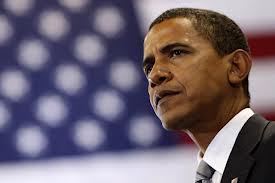Though sources differ on the scrivener of “You cannot strengthen the weak by weakening the strong” it is generally accepted that Reverend William Boetcker’s collection of ten maxims underscore the failures associated with an overzealous government. Whether they are the ideas of the Minnesota governor or President Obama, the reality is that the success or failure of our country depends upon the entrepreneurial spirit of the businessman and woman.
The idea that if you are able to out-create, outwork and over-deliver, the market will yield just rewards – that is what made this country the greatest economic power in the world. By stifling the entrepreneurial spirit, Boetcker’s ninth maxim and warning comes into play, that “You cannot build character and courage by destroying men’s initiative and independence.”
I offer these observations not as some vague notions or theories, but from real-world experiences gained from owning and operating businesses. And without question, in my experience, the world has changed not because our country’s founding principles and free-market heritage no longer work, but because the cancerous intrusion of over-reaching government has corrupted a system that built the most prosperous country in the history of civilization.
Take one business as an example. A client list that once was dominated by a spectrum of other enterprises from the retail, resort, and health-care markets has, over the past decade, changed dramatically. Today, nearly every one of our clients is significantly tied to some form of government overlay. At a time when private enterprise has withered on the vine and is dealing with a dramatically reduced capacity for expansion, the little growth in our economy is being almost entirely driven by government spending. While the market has, in essence, been relegated to the sidelines, politicians and budget dealmakers have taken over the game and are calling all the plays. This is not what built our country, and it is not a recipe for broad-based economic growth.
So at a time when businesses are struggling and job creators are treading water, raising taxes is simply not the solution. Our immense national debt is a function of spending too much and entitlement programs that are condemned by unsustainable designs – it is not a function of our businesses being taxed too little.
Which side will prevail? This election’s outcome will be determined largely on which side can capture and sustain the momentum of the energy its ideas create. How many businesses that are carrying so much of the country’s tax load – and in the process finding it increasingly difficult to operate – will come together? And, by collaborating, can they create an environment that acknowledges Boetcker’s fourth maxim, “You cannot lift the wage earner by pulling down the wage payer”.
Likewise, how this impasse affects Tim Pawlenty depends on whether or not he can harness the frustration of entrepreneurs and business owners across the nation. Indeed, the outrage in some corners of the business community over what has happened to the heart and soul of our country’s economy is ultimately bigger than any one presidential candidate. The winner of the Republican nomination will be the person who can best articulate this message and energize that base because they understand just how acute the disease afflicting our economy is today.



